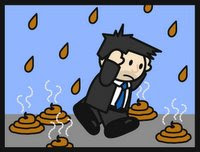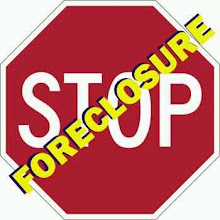By Robert X Cringely Feb 26th 2010 @ 12:00PM
Filed Under: News
The Great Recession wasn't the result of subprime mortgage madness, according to a new report from the National Bureau of Economic Research. It was just a plain old bank panic. Yeah, but weren't bank panics supposed to be a thing of the past, thanks to the creation of the Federal Deposit Insurance Corporation in 1934?
That's the problem.
The report, by Yale economics professor Gary Gorton, says subprime mortgage securitization was a mess -- a house of cards probably doomed to fall -- but subprime by itself simply wasn't big enough to put the entire financial system at risk. That required a failure of the Renew Sale and Repurchase (REPO) market for collateralized securities that over the last 30 years had come to backstop global finance.
The problem here, of course is that hardly anyone has even heard of REPO, which manages to be an unregulated, uninsured $20 trillion business that is absolutely essential to keeping money flowing in the world. Subprime is only $1.2 trillion -- not big enough by itself to wag this dog.
According to Gorton, the entire basis of global banking changed in the 1980s, thanks to money market funds and junk bonds, which took all the profit out of being a traditional bank. So banks began securitizing loans to regain those lost profits.
The REPO market of interbank loans had always existed but it grew dramatically in the 1990s to support securitization. But since there was no deposit insurance for institutional loans measured in hundreds of millions of dollars, counterparties demanded collateral to back these overnight REPO loans that generally replaced demand deposits in the banking system.
While the subprime mortgage crisis began in January, 2007, the ensuing bank panic didn't happen until August of that year when lenders began making collateral calls and demanding haircuts (collateral fire sales at discounted prices) from borrowers that led to all the big banks being seriously under-capitalized.
The government, while well prepared to respond to a demand deposit bank panic like those of 1907 and 1933, was not only unprepared for the 2007 panic, they didn't even know there was a panic until it was well underway.
The panic meant that the value of all types of bonds declined, trillions of bank capital evaporated and the REPO market, itself, collapsed as all counter-parties lost faith in each other and the basis of the entire banking system literally disappeared.
So what does this mean? Well it explains why the banks still aren't lending money, because they don't have the means to back the loans they'd like to make, absent government intervention. It means that until the REPO market regains some steam there isn't going to be much natural progress in getting the economy to start growing again (take out the government stimulus and we're screwed). And it shows that the Fed and Treasury in the United States were no better able to protect us than you could keep your dog from running into the road and being hit by a car.
But it wasn't strictly a subprime mortgage crisis.
Why is it I don't feel better?
Click on title above for full article;
http://www.housingwatch.com/2010/02/26/it-wasnt-a-mortgage-recession-after-all-so-why-dont-we-feel-b/
Tuesday, March 2, 2010
Subscribe to:
Post Comments (Atom)












No comments:
Post a Comment